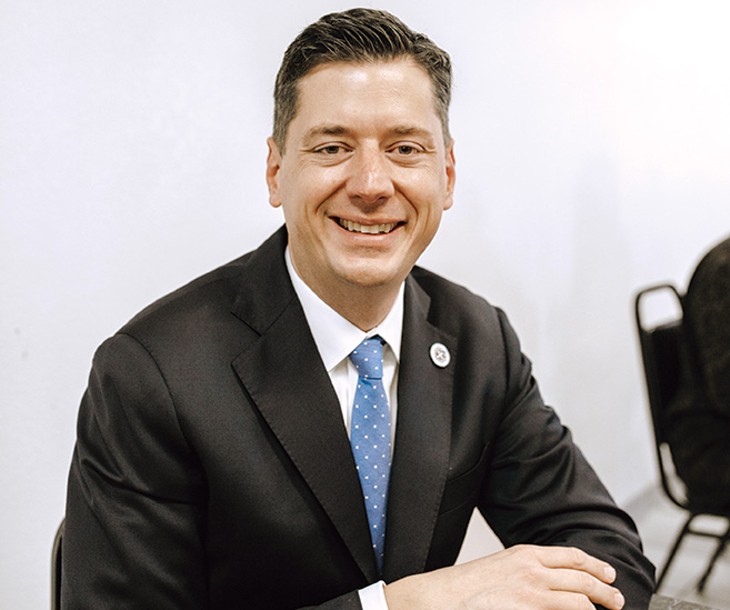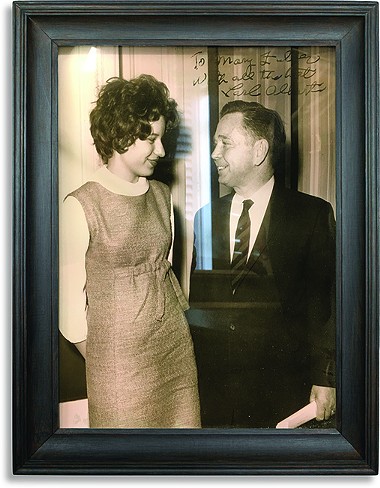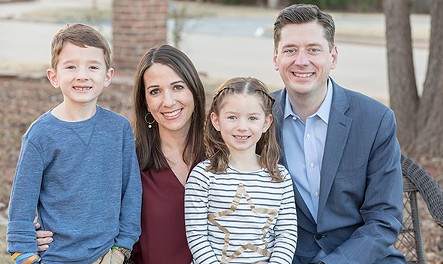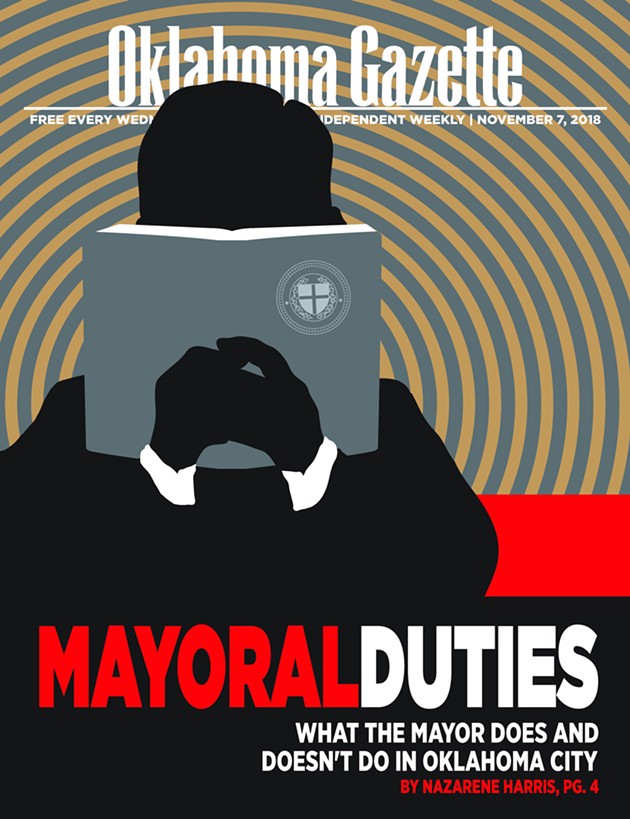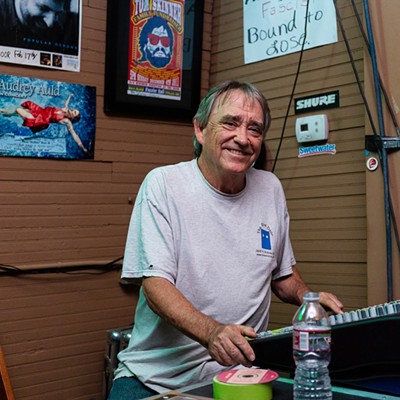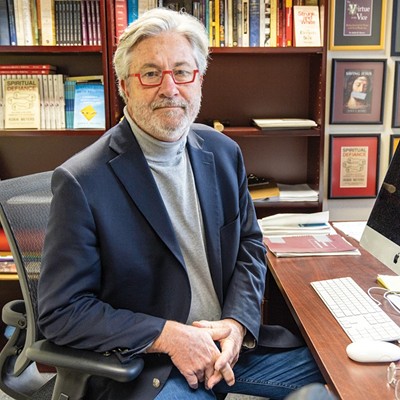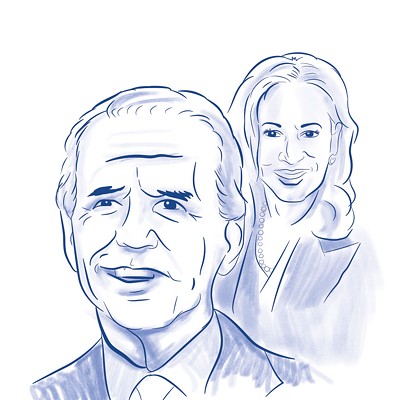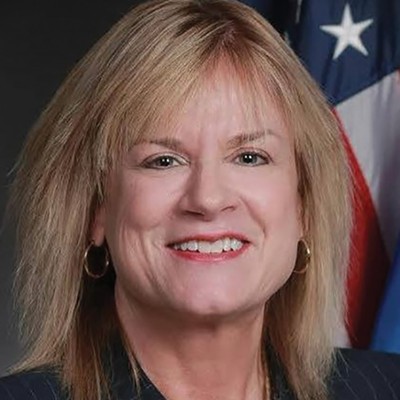Oklahoma City’s 36th mayor, David Holt, said 1993 is the year everything changed for Oklahoma’s capital city. That year, almost half a million people called Oklahoma City home, and some undoubtedly were reluctant. State historians agree that downtown was virtually vacant and the economy was suffering.
Oklahoma City was on its way to becoming Detroit, Michigan, but with warmer winters.
“You could shoot a cannon down Main Street and it wouldn’t touch a soul,” former city mayor Ron Norick said. “There was no one around. Nationally, we weren’t on the map either.”
The notorious Pei Plan devised by architect I.M. Pei as an urban renewal effort leveled many of downtown’s landmarks in the 1970s, and suburban migration compounded the city’s problems. As stores and businesses left the core for lucrative mall locations at the city’s fringes, OKC suffered from what city planners have called the doughnut effect.
It was up to OKC’s leaders and voters to fill the doughnut hole.
When major businesses began passing up on the chance to headquarter in OKC, Norick, who was mayor from 1987 to 1999, launched Metropolitan Area Projects Plan (MAPS). The plan called for funding city projects with a limited term, 1-cent sales tax.
Since its inception, MAPS has funded multiple projects, including Chickasaw Bricktown Ballpark, Bricktown Canal, Cox Convention Center, Chesapeake Energy Arena, Oklahoma River, sidewalk and public school projects and the upcoming streetcar initiative.
Twenty-five years after the launch of MAPS, the quiet city that couldn’t seal a deal has been dubbed the No. 1 city in the nation to do business in, the most affordable city to start a business in and the most economical city for millennials. Much of the credit for that success goes to the mayors who provided the political will for change — Norick, Kirk Humphreys, Mick Cornett and Holt — along with the city council members and city managers who pushed through those changes.
Systems of leadership
Despite Holt’s high profile and his near-constant leveraging of social media as a platform for mayoral outreach, OKC’s mayor is a component of what is unflatteringly called a “weak mayor” form of city government. Under this system, the mayor presides over city council.OKC’s charter states that the mayor’s duties include acting as “Chief Executive of the City” and “President of the City Council,” making appointments to boards and commissions, issuing proclamations, delivering an annual State of the City address (11:30 a.m.-1 p.m. Jan. 17, 2019, at Cox Convention Center, 1 Myriad Gardens; $60-$100) and with the approval of city council, hiring the city’s manager, municipal counselor, auditor and judges. He dedicates every Tuesday to mayoral duties and half of every other weekday to Oklahoma City and half to Hall Capital.
Under a “weak mayor” system, the city manager is in charge of keeping the machinery of city operations moving, overseeing 5,000 city employees and managing a $1 billion operations budget. Holt is currently going through the process of hiring a new city manager to replace Jim Couch, the longest-running city manager in the city’s history. Couch, who announced his retirement Sept. 17, will work his last day as city manager Jan. 2. The city began its candidate review process Nov. 6.
“The hardest job we’re going to have is figuring out how to replace you,” Ward 6 councilwoman Meg Salyer said to Couch during the Oct. 9 city council meeting. “Everywhere I go, from the grocery store to walking on the street, I get asked by people how we’re going to find someone to fill your shoes.”
This is not to say that the mayor’s position is a negligible one in OKC. In many cases, the mayor sets the tone for how the city moves forward, whether its on civic initiatives like MAPS or how the world perceives OKC.
In October, Holt responded to a thread on OKCTalk.com (Oklahoma Gazette’s sister publication) regarding the possibility that he was going to push forward with a soccer stadium for OKC Energy FC as part of the upcoming MAPS 4. The thread addressed an Oct. 18 email from Holt with the subject like “soccer” to members of Oklahoma City Chamber, mayoral staff and Energy FC co-owner Bob Funk Jr.
“I’ve visited with Bob and his team a lot over the last year or so, and you probably have as well,” Holt wrote in the email obtained by local activist and former Oklahoma City mayoral candidate Steve Hunt. “With the MAPS 4 conversation finally kicking off last week, I suggested to him it was probably time to sit down with Chamber leadership and at least get some focus on what our options are and begin thinking about what direction we as a community may want to go.”
Holt jumped into the thread to explain his position on the soccer scrimmage taking place on the site.
“I view my role as mayor in the MAPS process as guiding the community toward a consensus,” Holt wrote. “I’m a human being, so I may see the merits in some things more than others, and vice versa, but I don’t see it as my role to have any strong preference about any particular idea for MAPS 4 at this point. I want to see what the people of Oklahoma City have to say. There are, of course, quite a few ideas that have been floating around even before the kickoff of this ideas phase, and one of them is obviously soccer. It shouldn’t surprise anyone that the supporters of the Energy would like to work with the city on a stadium, as some variation of that story has been reported for years throughout the media. But I view my role as simply navigating the community through a decision process about that.”
Other possible MAPS 4 projects might involve facilities addressing homelessness and mental health issues as well as a potential replacement for 53-year-old Jim Norick Arena at State Fair Park.
Mobile mayor
Compared to the city manager, who earns around $250,000 a year, the annual salary of Oklahoma City’s mayor is fixed at $24,000, a sum that causes those elected to the position to secure additional employment.Like former mayors before him, Holt works two full-time jobs. He is both the city’s mayor and the managing director of investor relations at the family-owned private investment company, Hall Capital.
Former mayor Mick Cornett’s employment with public relations firm Ackerman McQueen coincided with some of his time spent as Oklahoma City’s mayor. From 2009 to 2011, Cornett served as executive vice president of special projects at Ackerman McQueen; earned an executive master’s degree in business from New York University (NYU) that called for him to be in New York 44 times over the course of a 22-month program; managed his video production business, Cornett Productions; and served as Oklahoma City’s mayor. While an executive MBA from NYU costs $144,000, Cornett earned a little under $50,000 as Oklahoma City’s mayor during the two years he went to school and held public office.
The level of work and commitment involved in holding an executive-level position with the largest advertising agency in Oklahoma while serving as mayor of a mid-sized metropolis and earning an advanced degree from an out-of-state institution, let alone the cost of that degree, is immense. Cornett did not respond to a request to comment from Oklahoma Gazette.
Holt declined to reveal how much he earns at Hall Capital but admitted to juggling school and work during the time he spent as Cornett’s chief of staff. From 2006 to 2009, Holt said, he worked for Cornett and attended night classes as a part-time law student at Oklahoma City University’s School of Law. A law degree from the school as a part-time student costs about $70,000, but Holt said he was able to stave off some of the cost with scholarships.
Life is a balancing act for Holt, he said, and open communication is key to staying leveled.
“While I do devote my time to both positions, it’s not black-and-white,” he said. “I can’t not be the mayor when I’m at Hall Capital and vice versa. But I have been transparent from the start, and my employment with Hall Capital has always come with the understanding that I would hold an elected position as well.”
As a director of investor relations, Holt is responsible for maintaining communication with potential company investors.
In the mayor’s office, Holt is one of four people assigned to keep the ship sailing. Steve Hill is his chief of staff, Karen Fox is his executive assistant and 23-year-old J.D. Baker was promoted last month from intern to special assistant to the mayor. Baker graduated from the University of Oklahoma in May with a degree in public relations. His father and two older brothers are Oklahoma City firefighters, and his great uncle participated in sit-ins with Oklahoma’s civil rights activist Clara Luper.
He’s not sure if he will follow in Holt’s footsteps and opt for a career in city government, Baker said, but he feels that he’s learning from the best.
“Children who have lost a parent early in life are often ambitious because we feel the need to live for the parent that has passed away and not just for ourselves.” — David Holt
tweet this
Before Baker became Holt’s special assistant, Holt was driving himself to every meeting and event that he scheduled for the day. The time it took him to get directions, find parking and prepare for meetings while multi-tasking added up.
Baker was given the keys to the city’s car he affectionately dubbed the “mayor mobile,” and the mentor and mentee became comrades overnight.
One Tuesday in October, Oklahoma Gazette tagged along. The mayor’s day began with breakfast with Ward 7 Oklahoma City Council candidate Nikki Nice; a guest appearance at Today’s Magic 104.1 radio station, also known as Steve and The Magic Man; a community forum at Oklahoma City University’s School of Law; a scheduling meeting; and a boards and commissions meeting.
Holt expressed his desire for OKC to gain national recognition for its role in racial desegregation by creating a monument that would pay tribute to the city’s historic sit-ins. Additionally, he expressed the actions he is taking to ensure that city government becomes diverse as well.
“I am a white guy,” he said. “I know that guys like me have held this position from the beginning. But that’s not always going to be the case, and that shouldn’t always be the case. It’s my hope that I can initiate change.”
The walls in his office on the third floor of Oklahoma City’s municipal building are decorated with photos of those who inspire him: his mother, his grandfather, his wife and children and about two dozen Oklahoma City elementary students of every race and background.
Holt exchanged photos of the city’s former mayors for pictures of the children’s smiling faces.
“This is who I serve,” he said. “We have a wonderful legacy of leadership in Oklahoma City, but I am aware that that leadership isn’t reflective of our population.”
Holt hung the photos of the city’s former mayors in the building’s halls and has set out to create a more diverse city government by seeking city board members who are diverse in age, gender and race.
His office includes a modest and bare desk that he admits gets little use.
“For me, this job has not been a sedentary one,” he said.
Fulfilling hopes
In 1993, the year Holt described as OKC’s turning point, his mother, Mary Anne Fuller Holt, died suddenly from a rare blood disease. Holt, who was 14 years old when his mother passed, lived with his mother after his parents divorced when he was 6 years old.He continued to live in his mother’s home in northwest Oklahoma City until he graduated from Putnam City North High School. His father, Stroud Holt, visited his son throughout the school week after his mother’s death. Holt spent much of his time alone.
MaryAnn Holt was a former social worker with a servant’s heart. She graduated from George Washington University with a degree in political science and a dream of one day working for a senator.
The easy-going and friendly boy who idolized his mother became a bit more serious and a lot more ambitious after she died.
“Children who have lost a parent early in life are often ambitious because we feel the need to live for the parent that has passed away and not just for ourselves; we feel the need to make worthy the sacrifices that were made for us,” Holt said.
Holt followed in his mother’s shoes and graduated with a degree in political science from George Washington University. While in Washington, D.C., he met his wife Rachel and worked in the office of legislative affairs in the White House under former U.S. President George W. Bush.
Rachel and David Holt married and moved to OKC, where their family grew with their children, George, 8, and Margaret, 7.
Back in his home state, Holt set out to receive a law degree from Oklahoma City University. Rachel Holt also earned a law degree and now serves as chief operating officer and senior general counsel at Oklahoma’s Office of Juvenile Affairs. David Holt turned to a career in politics and held positions including former Oklahoma City mayor Mick Cornett’s chief of staff and state senator from the 30th District until this year.
In April, Holt, 39, became Oklahoma City’s youngest mayor, having earned nearly 79 percent of votes.
Holt’s mother was offered her dream job to work for a senator shortly after her son was born, but in a move of unwavering motherly sacrifice, she turned it down to devote her time to raise her son.
“She would have been amazed when I became a senator,” he said. “And she would be amazed now. She would have never imagined that this could happen.”
Until the next generation of Oklahoma’s leaders take stage, Holt said, he will serve with the servant’s heart he’s proud to call a family legacy.

